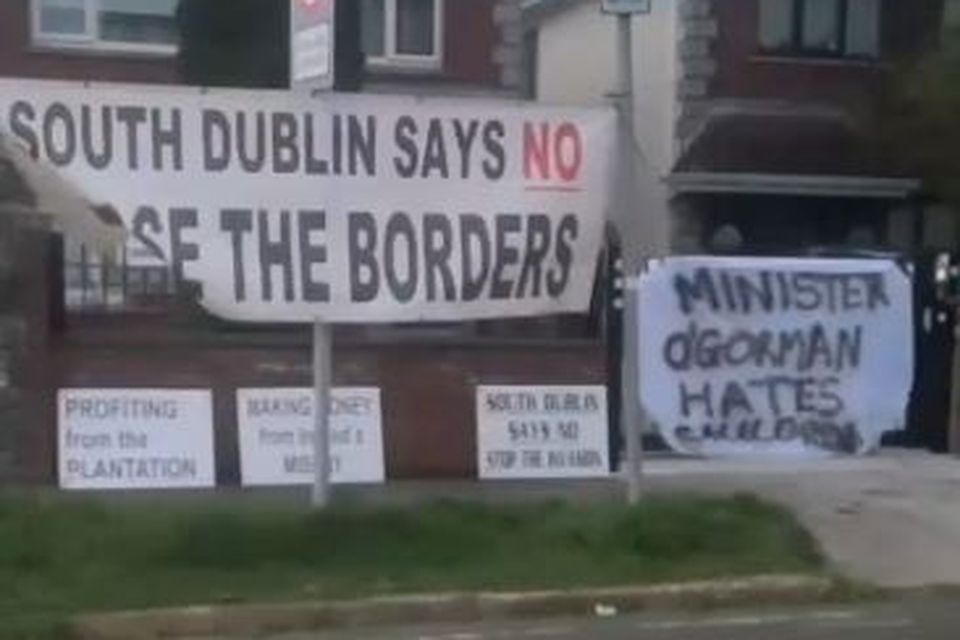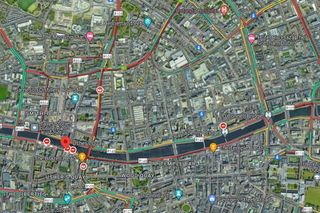Editorial: Taoiseach Simon Harris has no time to waste in fight against sinister elements
Banners placed on the railings at Minister Roderic O'Gorman's house by masked individuals aligned to the far right
Two things are said to be truly irretrievable: time, and a first impression. If Taoiseach Simon Harris wants to make his mark and show he is as good a doer as he is a talker, the ball is at his feet on the issue of law and order.
These are dangerous and uncertain times in our society, illustrated by balaclava-wearing demonstrators stalking the home of a minister.
It is shocking that relationships have broken down to such an extent that neither Garda Commissioner Drew Harris, nor Justice Minister Helen McEntee, were at the annual Garda Representative Association (GRA) conference.
The GRA refused to invite the commissioner following its vote of no confidence in him last year. Minister McEntee could hardly attend in his absence.
But such a breakdown in a critical relationship is unsustainable. Problems in organisations often occur because each side is focused on what is missing in the other, instead of identifying existing strengths and common interests.
The Taoiseach said the two big priorities in justice must be boosting garda numbers and making sure we have the laws to support them in their work.
He also expressed concern that laws were not being enforced more robustly, and wondered whether members of the force were feeling disempowered.
Such musings are perfectly permissible. But as leader of the country, it is up to him to rapidly find the answers.
He joins in the public anger towards the sinister element that sought to intimidate a minister at his home. It is an experience Mr Harris was also subjected to during his time as Health Minister.
It is always unacceptable to threaten a member of a democratically elected government. Too many politicians have been the target of this kind of harassment.
“I want clarity on what is a very simple question,” said the Taoiseach. “Is this a matter of enforcement or a matter of law?”
He said he was a “little frustrated” because gardaí need to know the State “has their back”.
They also need to know where they stand in stopping such protests. Gardaí face myriad issues, from being inhibited by red tape, undue interference in their work, inadequate numbers, and matters concerning pay and pensions. Most of this can be thrashed out with some clear and open communication channels.
With rank-and-file members leaving in their droves, it’s clear that a garda’s lot is not a happy one. Somewhere along the way, something has broken down.
But if the Taoiseach is fretting over too many politicians being put at risk, why is it happening so frequently?
If there is no law to stop it, why isn’t there? And if there is a law to stop it, why is it not being enforced?
Doubts about law and order have persisted in the public mind for some time.
The imperative for the Taoiseach must be to dispel them with clear and effective action.
Join the Irish Independent WhatsApp channel
Stay up to date with all the latest news















